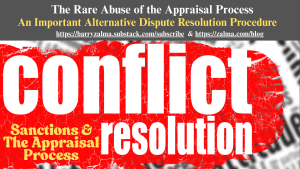Westpac engaged in unconscionable conduct for interest rate swap – court

Westpac engaged in unconscionable conduct for interest rate swap – court | Insurance Business Australia
Insurance News
Westpac engaged in unconscionable conduct for interest rate swap – court
Maximum penalty applied
Insurance News
By
Mina Martin
The Federal Court has ruled that Westpac Banking Corporation engaged in unconscionable conduct during a massive $12 billion interest rate swap transaction in October 2016, marking the largest of its kind in Australian financial market history.
The court has imposed the maximum penalty of $1.8 million on Westpac for its role in the controversial transaction, along with an additional $8m to cover ASIC’s litigation and investigation costs.
Westpac’s interest rate swap controversy
The unconscionable conduct by Westpac unfolded when it participated in pre-hedging activities ahead of an interest rate swap transaction with a consortium comprising AustralianSuper and IFM entities. This interest rate swap aimed to manage interest rate risk linked to the consortium’s acquisition of a majority stake in electricity provider Ausgrid from the NSW government.
“This is a significant outcome which assists to clarify expectations regarding pre-hedging, particularly around disclosure and consent where the pre-hedging can have a detrimental impact on the counterparty to the transaction,’ said Sarah Court (pictured above), ASIC deputy chair, in a media release.
“Appropriate conduct for pre-hedging is an issue of global significance. In this case, Westpac’s behaviour was unconscionable and exposed its client to significant risk. Westpac’s conduct was also in stark contrast with several other banks.”
Westpac’s conduct was deemed unconscionable due to several key factors, including awareness of the client’s concerns about trading before the swap transaction, failure to obtain client consent or provide clear disclosure about planned pre-hedging, and engaging in significant pre-hedging without safeguards for the consortium.
The court found that Westpac’s derivatives trading desk reaped a trading profit of approximately $20.7m on the day of the swap, with $3.7m allocated to the sales team as commission. The ruling also stated that Westpac failed to establish adequate arrangements to manage conflicts of interest between the bank and the consortium, neglecting to ensure a fair and efficient provision of the swap transaction to the consortium.
ASIC considers further action
ASIC is considering whether to mandate Westpac to undergo a compliance program, including an independent review of its pre-hedging practices, controls, and conflict of interest management.
In response to the verdict, Court expressed concern about the maximum penalty available for the conduct in 2016, stating that if a similar violation occurred today, the maximum penalty would be substantially higher. She concluded by emphasising the ongoing commitment to uphold high standards in financial markets.
The pre-hedging issue has garnered international attention, and ASIC is actively participating in discussions on the matter at the International Organisation of Securities Commissions (IOSCO).
To read other ASIC stories, click here and here.
Get the hottest and freshest mortgage news delivered right into your inbox. Subscribe now to our FREE daily newsletter.
Keep up with the latest news and events
Join our mailing list, it’s free!







